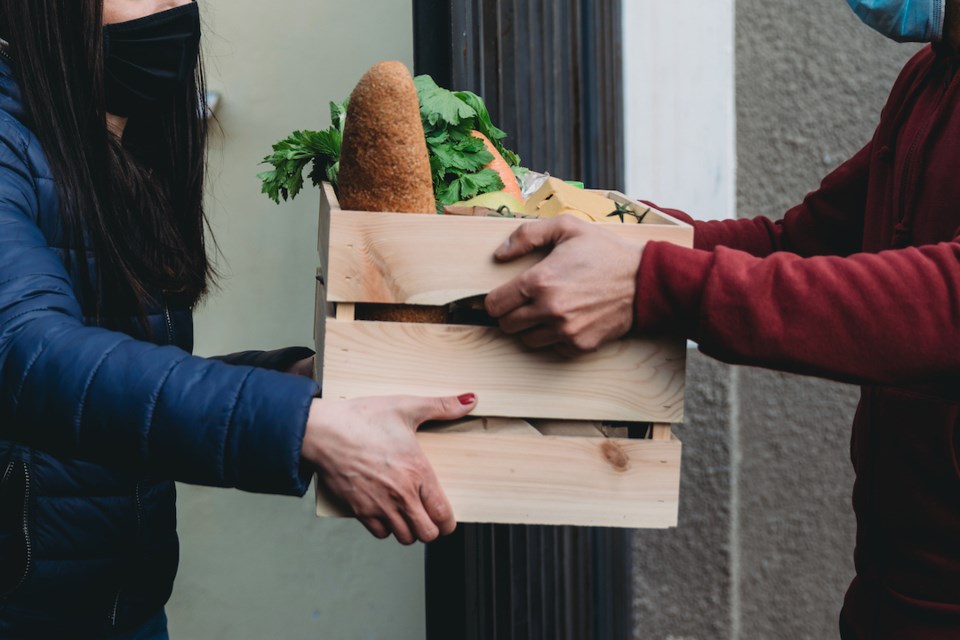Food bank stocks on the Sunshine Coast are getting low and the Coast’s four local food banks are hoping residents will step up to rebuild stocks.
The four local food banks (Sunshine Coast Food Bank, The Salvation Army, St. Bart's Good Bank, and the Pender Harbour Food Bank Society) are asking for donations of non-perishable items with a coordinated campaign next week, Oct. 17 to 21.
In Gibsons, the Salvation Army is collecting donations. In Pender Harbour, the Oak Tree Market is the drop-off location. In Sechelt, Sunshine Coast Food Bank accepts donations on Tuesdays and Thursdays.
Then, on Oct. 22, from 10 a.m. to 2 p.m., the Food Bank Coalition (consisting of the four food banks) is hosting a Coast-wide “depot day” at grocery stores and Sunshine Coast Credit Union locations. Volunteers will collect donations of non-perishable foods at those locations.
Stocks are low for a number of reasons, says Chris Hergesheimer, Food Security Lead at Sunshine Coast Community Services, and rebuilding them is necessary to being able to meet the daily need.
High food prices are squeezing Coasters’ wallets and food banks are also feeling the pressure, where their budgets can’t stretch as far with sky-high prices. “I think that's a big impact in terms of how we control supply and what we're able to offer on a week-to-week basis and in what quantities,” says Hergesheimer.
While Hergesheimer says they’re not seeing overall significant demand changes in the past few months, week-to-week fluctuations in use have grown – some weeks high, some weeks lower. “And that does correspond with when cheques come out,” says Hergesheimer. As it gets further away from cheque day, the need is higher. “And when people are able to access their income through some of those opportunities, whether it's GST or child tax credit or those types of income solutions, numbers are generally a little bit lower because of that empowerment.” (Also of note, Gibsons's St. Bart's Food Bank says it has recently seen a 25 per cent increase in the number of clients requesting food hampers.)
Some non-perishable items that are particularly asked for include: Tinned fruit, small jars of jam and honey, boxes of cereal (which are valuable and extremely expensive for the food banks to buy themselves, says Hergesheimer), tinned protein (seafood and other meats like chicken), hearty soups in wintertime (and chillis and stews). “Then we're able to use our budget to purchase the perishables: The dairy and proteins and all the fresh local vegetables that the people also ask for,” explains Hergesheimer.
“But across the Coast, we do really need to build up those stocks of non-perishables and so we'd love for people to come out to those depot days and meet the volunteers,” he said. “And if they go into the store and are able to purchase an extra two or three cans or a flat of soup, it has a really big impact on the daily.”
The campaign also coincides with World Food Day on Oct. 16. In the Sunshine Coast Community Services press release, Hergesheimer took the opportunity to talk to systemic change needed for food security. “Food is a human right, and no one should be left behind. We know that donations of cans and cash via food banks alone do not tackle the root causes of food insecurity and hunger. However, we need to support those in our community in any way we can as we develop projects and champion high-level policy solutions for structural change,” he said.
To find out more about the drive, call Hergesheimer at 604-865-0190 or email [email protected].



